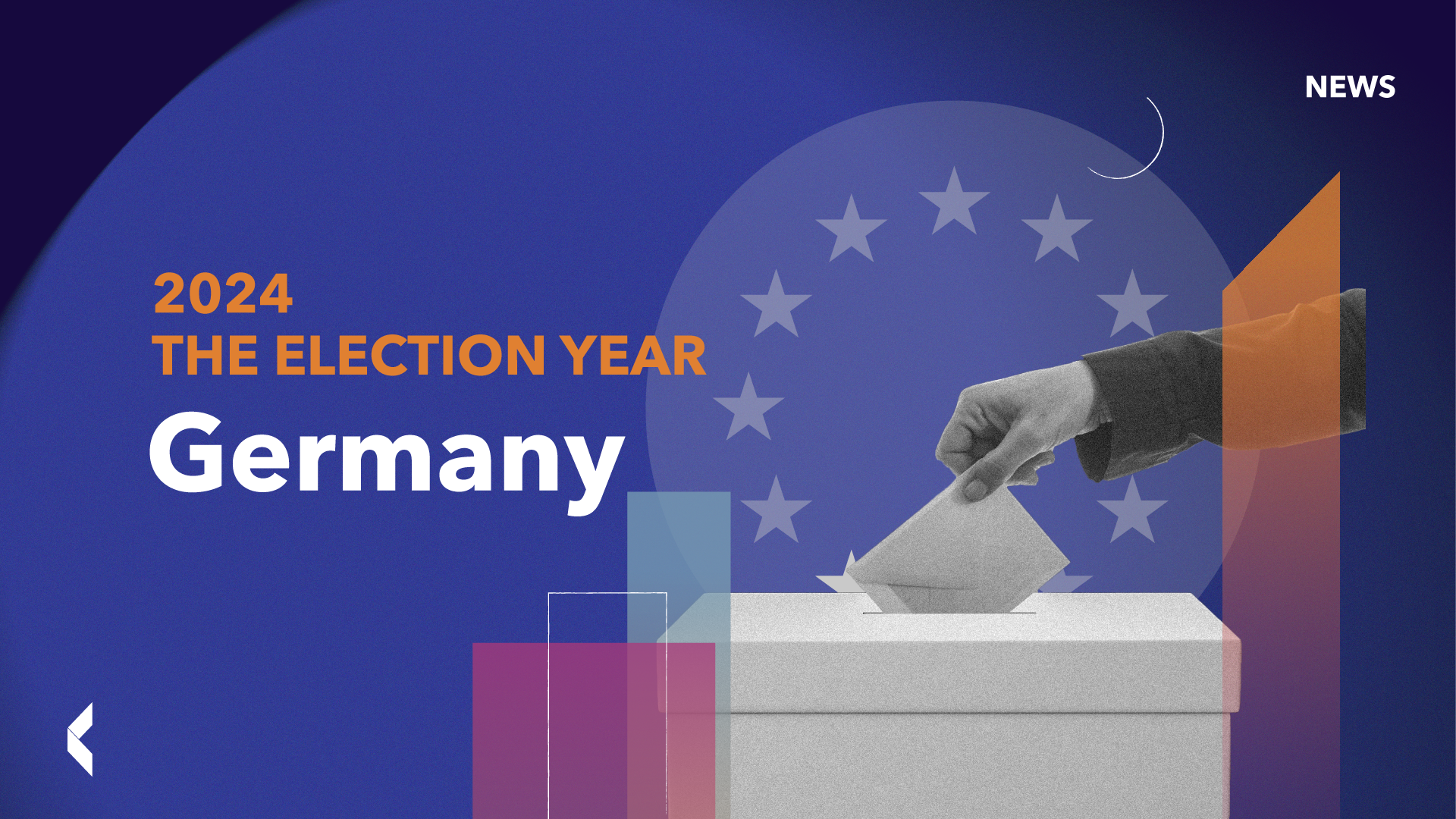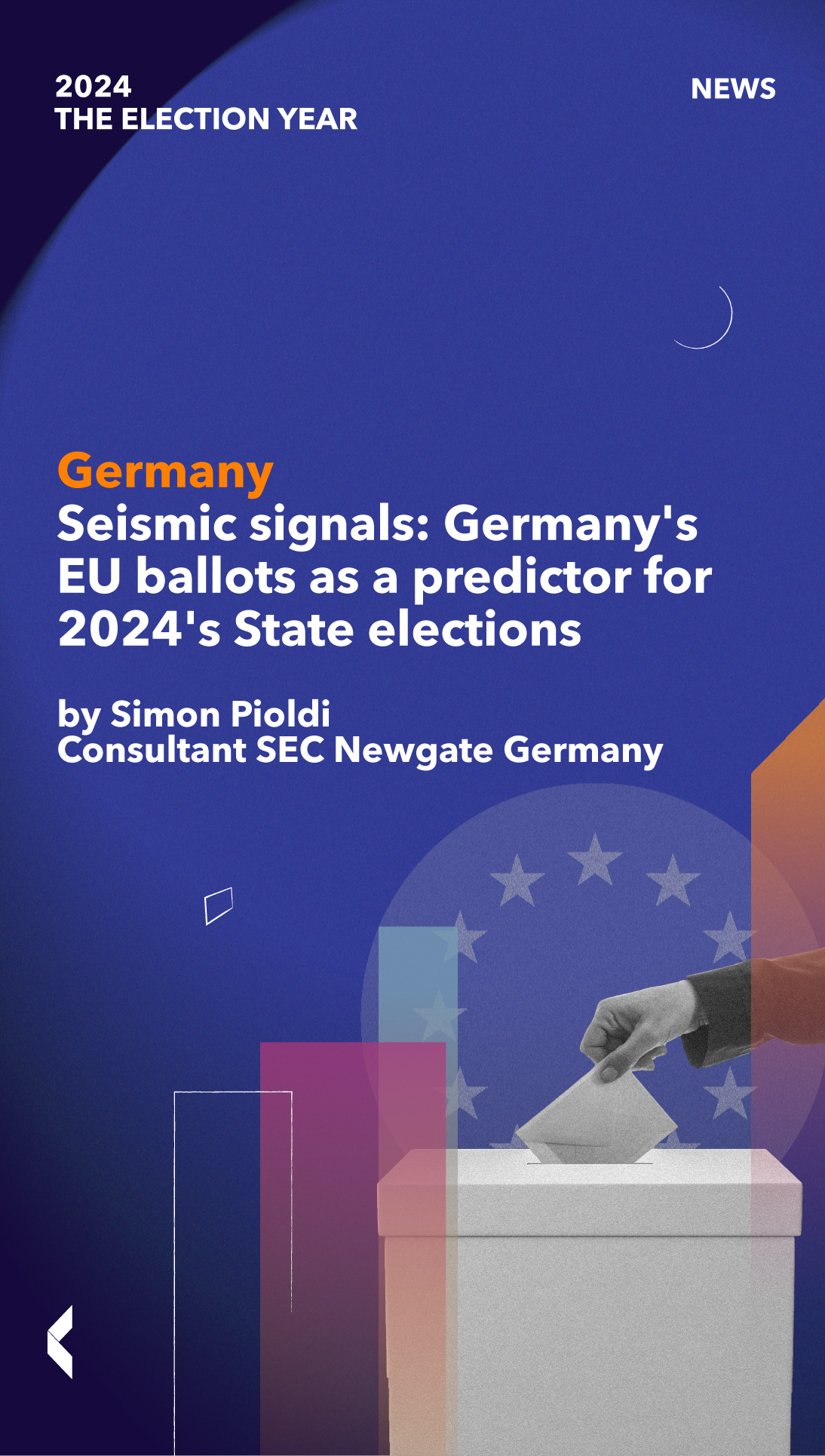About the Author
Germany’s economy has encountered significant challenges from the outset of 2024. Geopolitical uncertainties, elevated interest rates, and domestic tensions stemming from a recent Constitutional Court ruling on the federal budget have intensified pressure on the Scholz administration.
As Europe’s economic powerhouse, Germany’s heavy reliance on cheap energy, with approximately 30% of its economy dominated by energy-intensive industries, exacerbates the impact of the ongoing energy crisis. Despite some recent relief, there has been a considerable 17% decrease in production among energy-intensive sectors since early 2023.[Source 1] The county’s reliance on international trade renders its economy vulnerable to sluggish global demand.
Want to know more on how to navigate this complex landscape?
Having established a comprehensive understanding of the overarching context, our attention turns to a detailed analysis of Germany’s political terrain and its profound implications for the forthcoming ‘super election’ year. It is imperative to explore the intricate factors at play and anticipate the potential trajectories that could emerge following the German electoral process.
German Political Context – 2024 as the ‘Super Election’ Year
State Elections
The 2024 election year spotlight is on the three state elections in the eastern Länder of Germany: Saxony, Thuringia and Brandenburg are electing a new state parliament. Across these regions, the far-right populist party Alternative für Deutschland (AfD) has experienced a notable surge in support. Projections suggest the AfD could emerge as the dominant political entity across all three states, continuing a trend observed since the 2019 elections where the party gained between 11% to 17% support in the eastern regions.[Source 2]
EU Parliamentary Election in Germany
Ahead of the much-anticipated state elections, German voters will first head to the booths to cast their votes for the European Parliament (EP) elections on June 9th 2024. Historically, the CDU/CSU has consistently dominated the German EU vote. It remains to be seen whether the lowering of the legal voting age and the emergence of the AfD will disrupt the Christian Democrats’ continuous success.
In recent years, the importance of EP elections have grown significantly among Germans, with a voter turnout of approximately 61.4% in the 2019 election, marking a notable increase of 27.6% from 2014. With Germany holding the largest number of seats in the European Parliament (96 out of 720), the impact of the German vote on future EU policies is undeniable.
It remains to be seen whether Germans will continue to send a strong signal for the European project by voting for a mainstream party or opt for a protest vote by choosing the AfD, whose election platform diverges sharply from European ideals. Latest forecasts give the CDU/CSU a clear lead, with the AfD as the second strongest party. [Source 3]
Efforts to secure votes
Government Coalition (Die Ampel)
During their recent party conferences, the coalition partners of the current government presented their visions for the EU elections, which reflects the widening divide within the Scholz cabinet on various domestic and European topics.
In their agenda, the Social Democrats (SPD), highlight the necessity of countering right-wing forces both within the EU and in Germany. Lead candidate Katarina Barley underscores the significance of standing in solidarity with Ukraine against Russia and advocates for bolstering Europe’s industry, economy, and social security, with a specific emphasis on climate protection and expanding renewable energy sources.
The Liberal Democrats (FDP), on the other hand, emphasise streamlining EU bureaucracy and bolstering defence capabilities. The liberal party advocates for a stronger EU, particularly in foreign and security policy, with aims to establish a European Defence Union and facilitate joint arms procurement. Leader Lindner emphasised the imperative of amplifying the voice of freedom in the EP and cautioned against the ascent of the AfD.
In contrast, the Greens (Bündnis 90 Die Grünen), prioritise ecological concerns in their EU election agenda, focusing on transitioning to renewable energy sources. They advocate for an EU-wide green investment programme and seek to promote European cohesion through integrated infrastructure networks. Additionally, they prioritise environmental transformation, social justice, and reform in foreign and security policies, with the goal of enhancing EU effectiveness through majority decisions.
Opposition (CDU/CSU & AfD)
AfD
It is unsurprising that Germany’s most contentious and populist party challenges the political status quo. Frontrunner for the upcoming election campaign is Maximilian Krah, MEP since 2019.
His platform advocates for a “federation of European nations” where member states retain their sovereignty, suggesting to put Germany’s EU membership to a popular vote.
In terms of communication, the AfD is one of the few political parties in Germany that has widened its communicative efforts on most social media platforms, yielding impressive results. This concentrated effort is notably aimed at engaging with the younger demographic. A recent study highlighted that the AfD attracts a larger following compared to its competitors, especially among young internet users on platforms like TikTok.[Source 4]
Moving forward, these trends may further polarise German politics, potentially reshaping the country’s political landscape and sparking debates on the future of EU integration.
CDU/CSU
The so-called Christian Democratic Schwesterparteien (fraternal parties) emphasise security and defence, calling for a stronger EU. They argue that recent conflicts in Europe’s immediate neighbouring countries, demand for increased spendings on military defence systems.
The growing far-right sentiment among Germans has prompted conservative parties to shift rightward to retain their support base. This shift is evident in the CDU/CSU. In recent years, the party has embraced positions and debates once considered controversial, reflecting a changing political landscape.
Potential impact
Given the current complex landscape, the outcome of both the EU and state elections in Germany is uncertain. It is premature to offer a definitive forecast at this stage. However, it is not unforeseeable that there may be an increased appeal for far-right parties, particularly against the backdrop of the ongoing crises affecting Germany and its neighbouring regions.
The culmination of the 2024 ‘super election’ year holds significant implications for German politics, with the potential to exacerbate existing divisions and prompt discussions on the future trajectory of the European project. Moreover, the potential impact of external factors, such as the outcome of the U.S. elections in November 2024, adds an additional layer of complexity to the situation.
It is evident that the EU elections scheduled for June will function as a seismograph, offering valuable insights into the prevailing political sentiments that will shape the outcome of the state polls in Thuringia, Saxony, and Brandenburg in September. These elections are poised to serve as a critical juncture in Germany’s political landscape, potentially catalysing further polarisation.
While the specific outcomes remain uncertain, the forthcoming elections represent a pivotal moment in German and European politics, with far-reaching implications for both domestic governance and broader supranational dynamics. As such, stakeholders across various sectors will be closely monitoring developments, anticipating the potential ramifications that may arise from the electoral outcomes.
The German government – in a nutshell
German Chancellor: Olaf Scholz (SPD – Social Democrats)
Governing Coalition:
- SPD (leader: Olaf Scholz) à Social Democrats (Center-Left)
- FDP (Leader: Christian Lindner) à Liberals (Center-Right)
- Bündis 90/die Grünen (Leaders: Ricarda Lang & Omid Nouripour) à Greens (Center-Left)
Opposition:
- CDU (Leader: Friedrich Merz) à Christian Democrats (Center-Right)
- AfD (Leaders: Tino Chrupalla & Alice Weidel) à Far-Right Populist
- Die Linke (Leaders: Janine Wissler & Martin Schirdewan) à Die Left (Far-Left)
- BSW (Leader: Sarah Wagenknecht) à Far-Left Populist
To know more:
- Country profile of Germany, on the EU website

